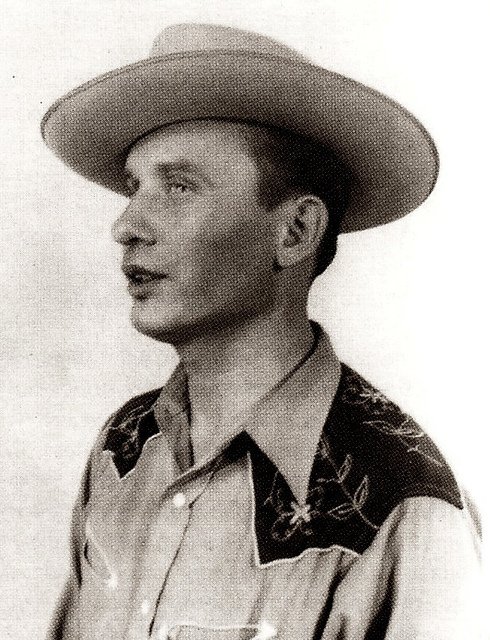Jack Kittel:
Presumably, there are times in your life when you dig through your music collection for fucked up country songs. Leon Payne’s “Psycho” is one of my personal favorites. Payne was a prolific blind songwriter from San Antonio, and though he was involved in many recordings and projects, he reached many more listeners when his songs were popularized by other artists — Hank Williams, George Jones, Elvis Presley, Johnny Cash, Willie Nelson, Jerry Lee Lewis, Ray Price. So it’s fitting that there’s not even one recording of Payne singing his ballad “Pyscho,” one of the eeriest songs ever penned.
Elvis Costello:
I first heard the song as an Elvis Costello bonus track on the deluxe edition of Almost Blue, Elvis’ odd but rewarding album of country covers. Detailing the exploits of a deranged serial killer, the song is beyond chilling. As the lyrics progress, the killer drowns a dog, strangles Johnny (who is presumably a family member), and kills a girl named Bettie Clark with a wrench. The song is sung from the perspective of the killer himself. Through this narrative choice, Payne created some profound character depth, leading most interpreters to make the narrator’s voice deadpan.
Eddie Noack:
Conceptually, it’s a pretty interesting song. In the typical country murder-song script, I guess it’s fairly common for the killer to emerge as both a non-remorseful villain and naturalistic victim. Actions are chalked up to fate and the killer is victimized simply by the way “the world works.” However, Payne takes the song a completely different direction. The killer isn’t on the wrong side of the law. He isn’t claiming to be on either side of good or evil. Rather, he’s unable to realize the gravity of his actions — highlighting the chasm between the cold, calculated madness of a psychopath and the spontaneous, violent outbursts of a sociopath. This affectation distinguishes the narrator from the usual cast of country ballad murderers.
“My mind just walked away” is the last line of the song. And goddamn it is more frightening than you’d expect. Of course everything seems scarier when the killer can’t understand why his actions are villainous. This naïveté is what makes “Psycho” one of the most powerful songs in the murder country canon. The killer is a complete antithesis to what we’re used to — lacking a truly evil will or a tragic outcome plagued by external forces. Instead, Payne’s narrator is driven by unadulterated bouts of violent and clinical insanity. Like method actors, each of the song’s interpreters have inherited a truly dark and disturbed mind. Perhaps this senseless madness is a disposition too interesting for artists not to explore.
A Camp on WFMU:
